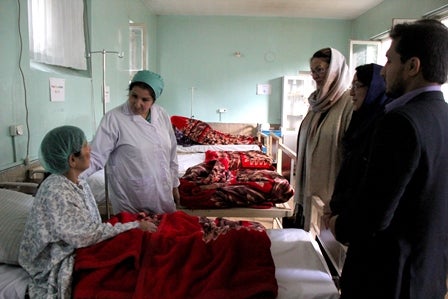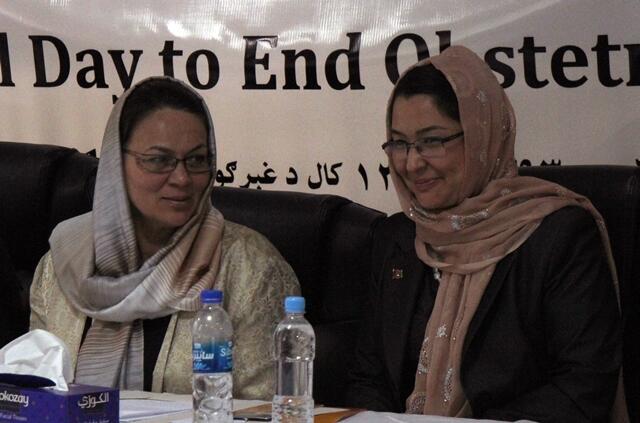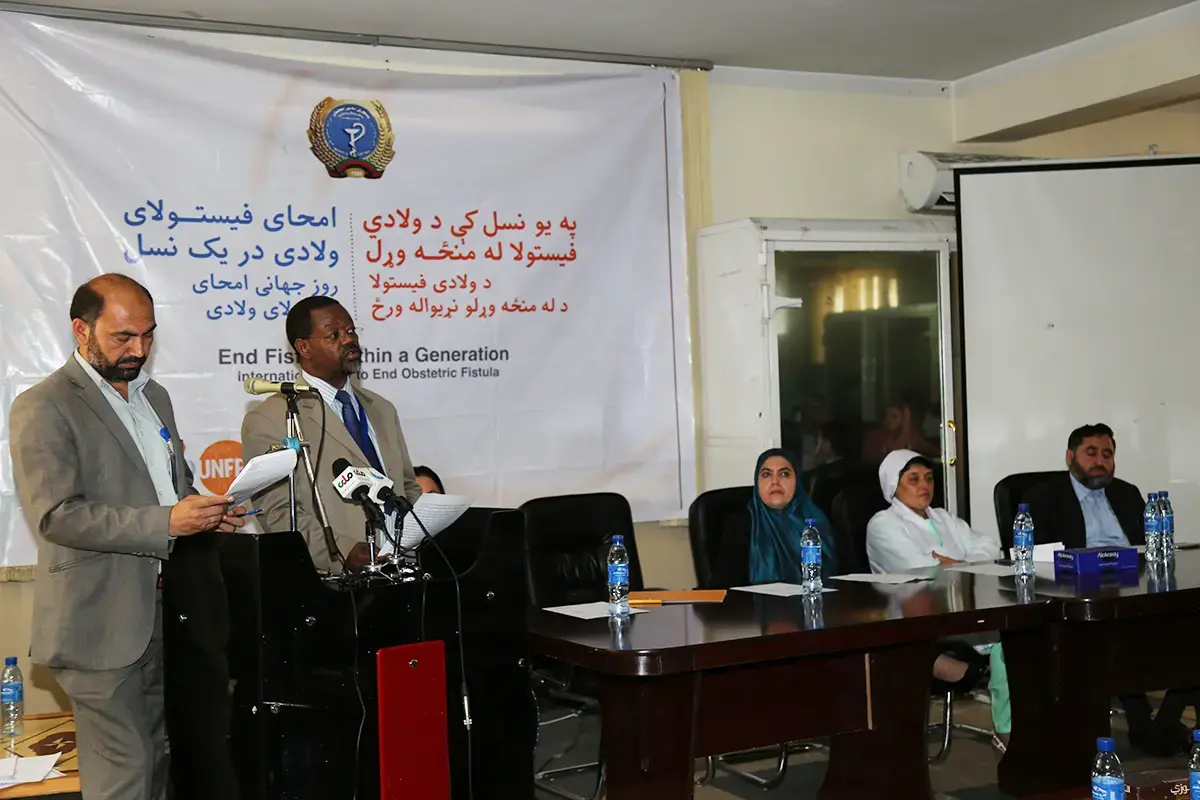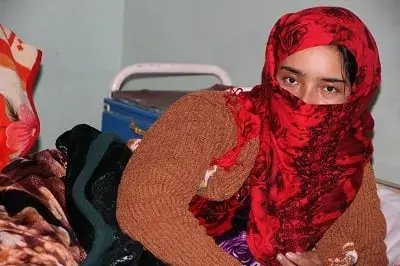On the 27th of May the Ministry of Public Health, Malalai Maternity Hospital and UNFPA, the United Nations Population Fund, celebrated the International Day to End Obstetric Fistula. Participants from the health sector joined the event to raise awareness about a condition that two million women and girls suffer in developing countries.
According to a 2011 report conducted by UNFPA in six provinces of Afghanistan, four women live with obstetric fistula for every 1,000 ever married women of reproductive age. Twenty-five per cent of them were younger than 16 when they married.
Obstetric fistula is a devastating childbirth injury which leads to both physical and social harm for women. Obstetric fistula is a hole between the vagina and bladder or rectum, usually caused by prolonged labour without treatment. Fistula leaves women leaking urine or faeces, or both, and typically results in social isolation and depression.
"The most effective way to prevent more women from being injured by obstetric fistula is by ensuring universal access to family planning, skilled birth attendance, and emergency obstetric care", said Dr. Suraya Dalil, Minister of Public Health. "To address the problem, the Ministry of Public Health aims to increase the number of midwives in the health care system and expand the availability and access to emergency obstetric care, hence to increase skilled birth attendance and family planning services", explained Minister Dalil. "A holistic and human rights-based approach is needed to tackle its root causes. Obstetric fistula will only be eliminated if women are able to make informed decisions about their reproductive lives", said Minister Dalil.

Since 2007, the Ministry of Public Health and UNFPA have continued to support the country's first national obstetric fistula treatment facility at Malalai Maternity Hospital in Kabul. UNFPA has supported this health center with supplies, equipment, and technical capacity building of medical staff to enable them to treat obstetric fistula patients.
"Malalai Hospital Fistula Ward is one of the pillars of a much bigger effort coordinated by the Ministry of Public Health to end fistula in Afghanistan. Together with the Ministry, we are training obstetricians, gynecologists and midwives in the prevention, treatment and referral of obstetric fistula patients", said Dr. Annette Sachs-Robertson, UNFPA Representative.
During the last five years over 435 patients have been treated and rehabilitated at Malalai Maternity Hospital. Health care providers have also been trained on provision of psychosocial support and counseling to improve re-integration and rehabilitation of obstetric fistula patients, and regular refresher training programs have been conducted for the doctors and nurses of Malalai Maternity Hospital over the last 4 years.
In 2010 UNFPA assisted in developing a national obstetric fistula curriculum and together with the Afghanistan Society of Obstetricians and Gynecologists and the Afghan Midwifery Association, midwives, female doctors, obstetricians and gynecologists have been trained to diagnose, prevent and refer obstetric fistula patients.
To further strengthen the programme, UNFPA and the Ministry of Public Health, will start a comprehensive rehabilitation program where patients will get the support needed to start a new life free of fistula.
As a joint advocacy effort by the Reproductive Health Directorate and UNFPA, the elimination and treatment of obstetric fistula is now part of the national Reproductive Health Strategy and Action Plan from the Ministry of Public Health.





